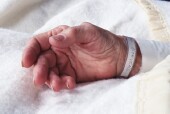
WEDNESDAY, Dec. 21 (HealthDay News) — Hospital patients who are moved from regular care into isolation have a nearly twofold increased risk of developing delirium, but patients who begin their hospital stay in isolation aren’t at increased risk, researchers have found.
Delirium is a potentially dangerous change in mental status that can affect hospital patients. The condition is usually temporary but can have an impact on patient care. Symptoms include an inability to pay attention, confusion and a fluctuation in alertness.
Placing a patient in isolation is one of the measures used to prevent the spread of hard-to-treat infections such as methicillin-resistant Staphylococcus aureus (MRSA). These measures, known as contact precautions, also require health care workers to wear protective equipment such as masks and gowns.
In this study, University of Maryland School of Medicine researchers examined two years of patient data from the university’s medical center. Patients who were placed on contact precautions at some point during their hospital stay had a 1.75 times increased risk of developing delirium, the investigators found.
However, patients who were placed on contact precautions at the time they were admitted to hospital did not have an increased risk of delirium, according to the study published in the January issue of the journal Infection Control and Hospital Epidemiology.
The findings suggest that the contact precautions themselves may not cause delirium, the researchers said.
“Patients in our study who were placed on contact precautions later in their hospitalization were generally sicker than those who were on contact precautions from the outset,” study leader Dr. Hannah Day said in a journal news release. “So it’s possible that the underlying illness rather than the precautions themselves is responsible for the association with delirium,” she explained.
“Regardless of cause, we hope clinicians will view a move to isolation as a marker for increased risk of delirium and take appropriate precautions,” Day added.
The researchers said patients on contact precautions should be informed about the reasons for and the goals of the intervention in order to help them accept the situation. Health care workers need to monitor medications and do their best not to interrupt patients’ sleep patterns, and isolation rooms should have clocks, calendars and other objects that can help prevent sensory deprivation among patients.
More information
The U.S. National Library of Medicine has more about delirium.

